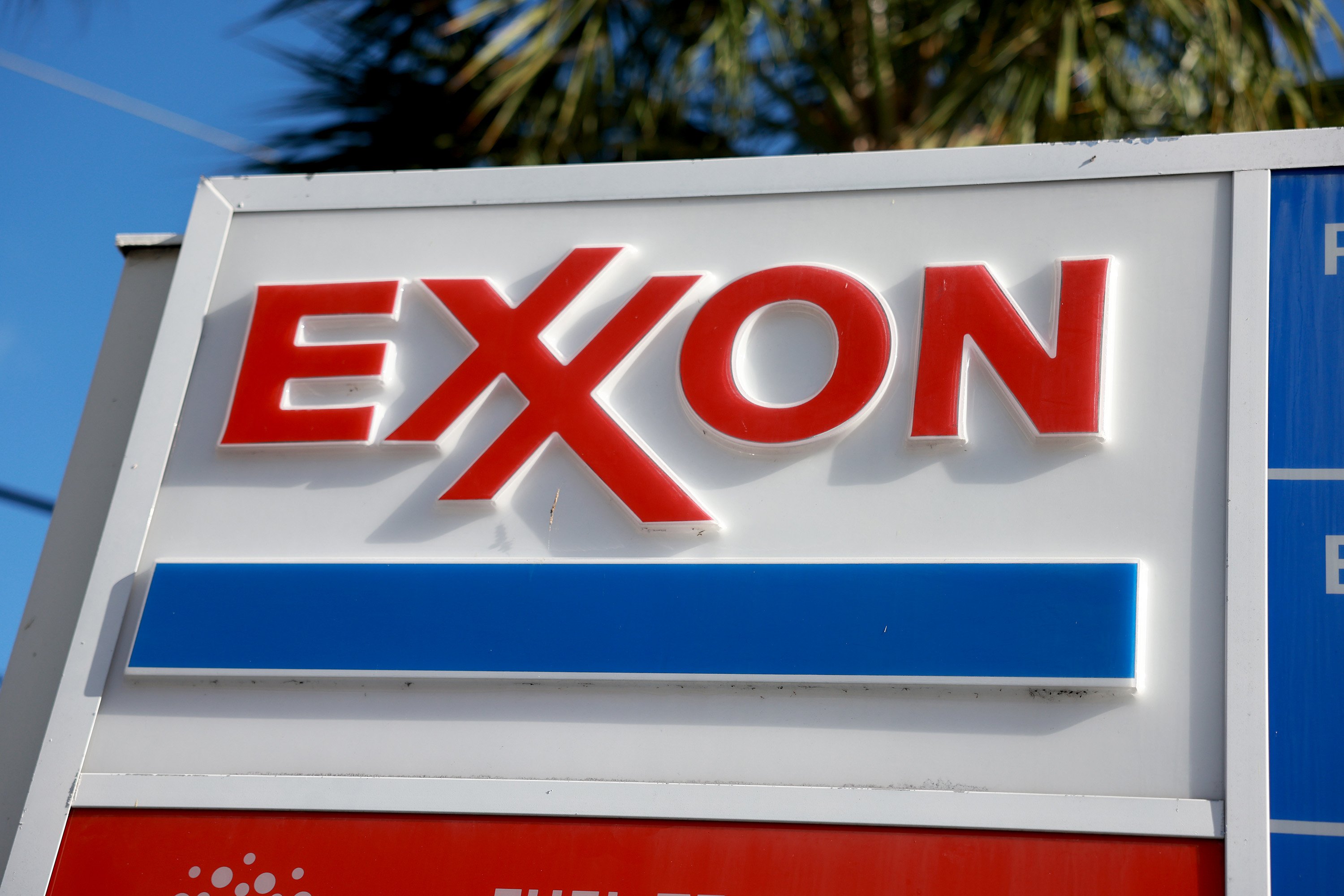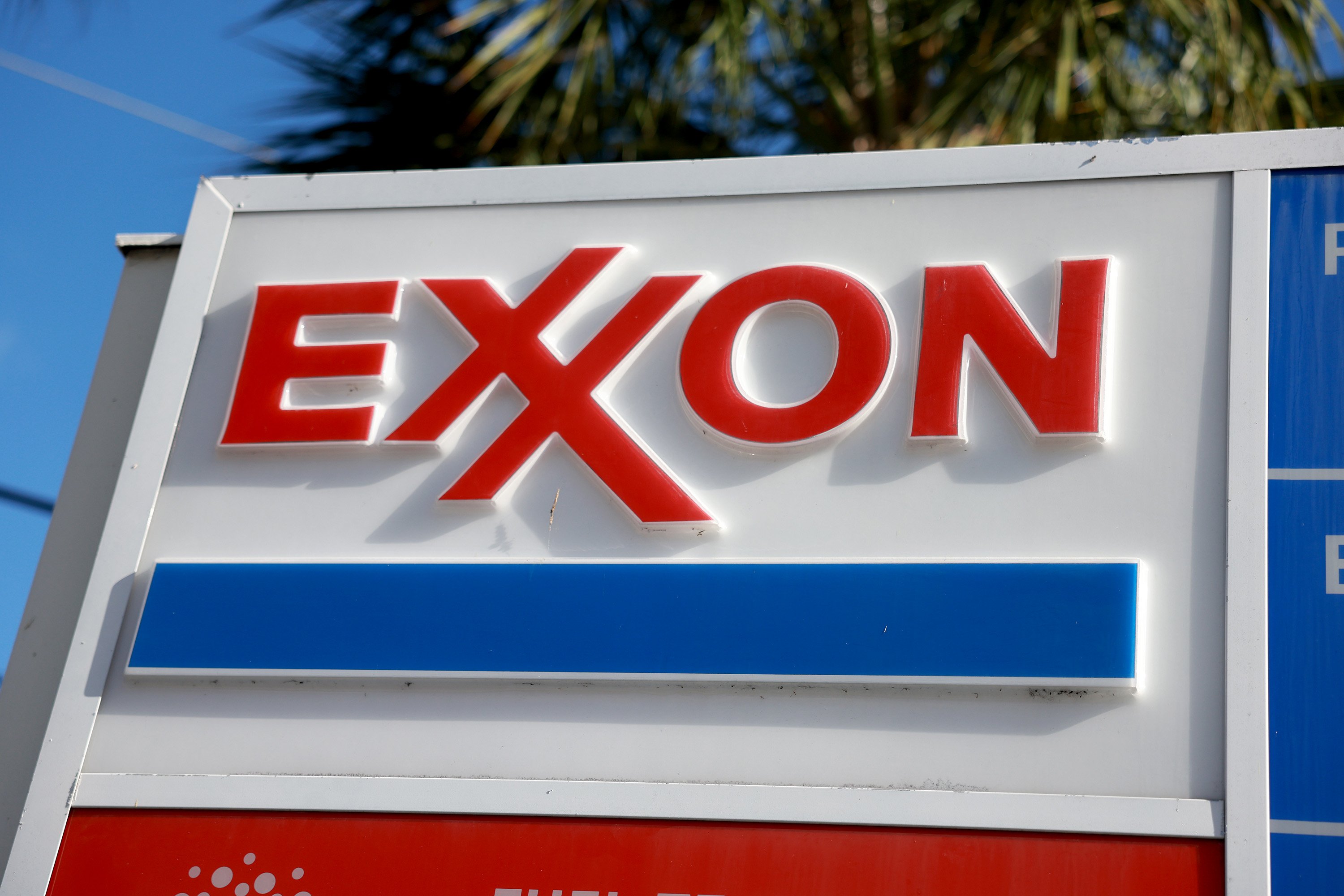Check out the latest Kinder Morgan and ExxonMobil earnings call transcripts.
Look out! The dividend yield of natural gas pipeline operator Kinder Morgan (KMI +2.35%) seems about to overtake that of oil major ExxonMobil (XOM +3.85%)! Currently, Kinder is yielding 4.6% while Exxon is yielding just 4.7%.
Beyond their dividend yields and their industry, though, the two companies don't share many similarities. But that's why Kinder Morgan may be a more attractive buy right now than ExxonMobil. Here's why you might want to consider the niche player despite Exxon's larger size and scope.

ExxonMobil and Kinder Morgan are top companies in their respective segments of the U.S. oil and gas industry. Image source: Getty Images.
Ups and downs
One of ExxonMobil's biggest issues in recent years has been its declining oil and gas production. Although the final numbers aren't in for 2018, it looks as though the company is poised to post its third straight year of decreasing annual production (although it did manage to notch a sequential quarterly production increase in Q3 2018). Those drops haven't translated into falling revenue in recent quarters thanks to strong oil prices, but oil prices fell off a cliff in the fourth quarter, so Exxon's output slide may finally come back to bite the company.
While it's true that Exxon has long-term plans to reverse those production declines by exploiting to new opportunities in places like offshore Guyana, it will to take time to bring those fields online, and there may be some painful quarters (or even years) in the interim.
Kinder Morgan has a small oil and natural gas liquids production business as part of its CO2 operations, but primarily its volume numbers refer to the amount of third-party gas it transports through the pipelines it operates. Because Kinder operates on a "toll booth" revenue model -- customers pay based on the amount of gas they send through the system -- higher volumes translate to higher revenues for Kinder.
And higher volumes are what Kinder is seeing now, thanks to the natural gas boom in the U.S. In its most recently reported quarter, Q3 2018, Kinder's large-diameter pipes saw transfer volumes increase by 4 billion cubic feet per day, up 14% over the prior year, while volume in its gathering pipes was up 15%. These trends should continue: According to Kinder Morgan President Kim Dang, the overall U.S. natural gas market is estimated to have grown by more than 10% in 2018, and further growth is expected.
Rewarding shareholders
While ExxonMobil and Kinder Morgan both have attractive dividend yields, Kinder Morgan also plans on rewarding its shareholders in a way Exxon currently isn't: through share buybacks. Indeed, Raymond James Financial Inc. analyst Pavel Molchanov called Exxon the "odd one out" among oil majors for refusing to buy back its shares, preferring instead to deploy its cash toward dividends and growth projects. This is a departure from Exxon's historically liberal buyback policy.
Given the oil major's declining production numbers, focusing on growth probably isn't a bad idea. But peers like Chevron and Royal Dutch Shell have been buying back shares. And Kinder Morgan repurchased $250 million worth of its stock in 2018.
More KMI buybacks may be on the way. On the company's Q3 earnings call, CEO Steve Kean mentioned the possibility multiple times, saying, "[W]e continue to believe that our current share price is an attractive value for share repurchases."
In addition, Kinder Morgan is expected to boost its dividend by 25% in 2019. That's on top of a 60% dividend increase in 2018. While dividend aristocrat ExxonMobil has been boosting its payout every year for decades, its most recent increase was $0.05 to $0.82 per share -- about a 6.5% hike.
No end in sight
Exxon has a fair number of expansion projects in the works that should help to boost production -- and, hopefully, profits -- down the road. The good news is that Kinder Morgan has numerous projects in the works as well. These are especially important for Kinder now that it has sold its major Canadian Trans Mountain Pipeline -- along with a proposed expansion -- to the Canadian government.
The Trans Mountain Pipeline expansion project was controversial, and plagued with legal challenges and delays on multiple fronts. Selling the project to the government was thus a good move for Kinder Morgan -- it not only removed the risk associated with the expansion, but also netted it about $2 billion that went straight to the bottom line.
The downside was that a $5.7 billion expansion project was now off the table. Luckily, the company still has about $6.5 billion of projects in its backlog, including another major pipeline out of the Permian Basin. These should provide a foundation for solid long-term growth.
Investor takeaway
Oil prices have fallen recently, and although they could recover in short order -- or languish for years, as they did from 2014 to 2017 -- it's tough to guess what might happen on that front. A sustained period of high oil prices could drive Exxon to outperformance regardless of what its production is doing.
But if a crude price rebound doesn't happen -- and as of right now, it doesn't seem to be -- investors will be better off buying into an energy company like Kinder Morgan that's insulated a bit from oil prices. And considering that Kinder Morgan's volume numbers have increased, and that it plans to raise its dividend substantially, as well as possibly buy back more shares, it looks like a better buy right now than ExxonMobil.







